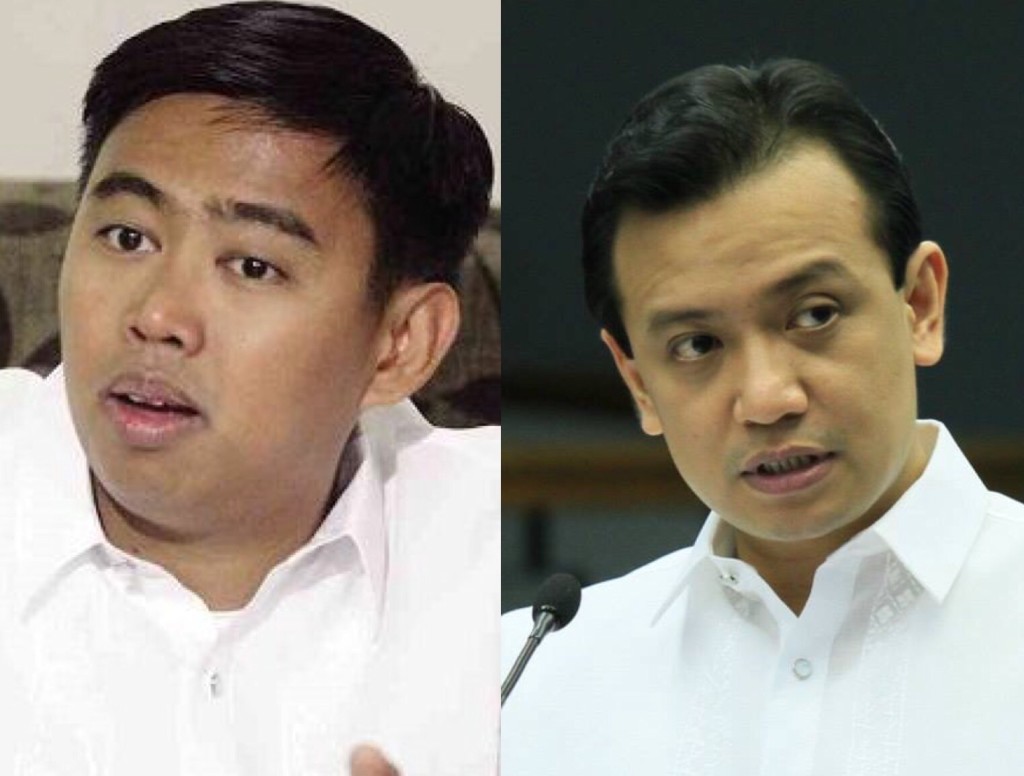
MANILA — Makati Mayor Jejomar Erwin S. Binay filed a libel complaint before the Office of the Makati City Prosecutor against Senator Antonio Trillanes IV for having “publicly and maliciously” accused him and his family of bribery and other crimes and irregularities “without factual basis”.
In an interview aired last April 7 over several radio and television programs across the country and directly quoted in an article published in the April 8 issue of the Inquirer, Trillanes publicly claimed that the mayor allegedly bribed the members of the 6th Division of the Court of Appeals by paying them millions of pesos in exchange for favorable action on his prayer for a TRO and Writ of Preliminary Injuction against his suspension order.
In the news reports, Trillanes was also quoted as saying that the mayor and his family were “part of a syndicate” that has committed various crimes and irregularities.
In his complaint-affidavit, Binay said it was evident from the media interview of Trillanes and the subsequent article published in the Inquirer, titled “Trillanes: I will expose Binay paid for TRO”, that he had made the statements “despite the utter lack of evidence”.
“The damaging and ruinous claims spewed out by respondent Trillanes are mere concoctions and fabrications with no other purpose than to malign, discredit, ruin my reputation and besmirch my good name as well as that of my family,” Binay said.
The mayor pointed out that Trillanes himself had admitted during the interview that he had no valid proof or factual basis for his pronouncements.
Based on the actual interview, the senator appeared “evasive” when asked directly by reporters how he came to know about the alleged bribery. Instead, he, a former Navy officer, cited his use of “intelligence”, which he said was military parlance for information gathered for purposes of “decision-making”.
In his complaint, Binay said the acts of Trillanes in connection with the defamatory statements made against him constitute a violation of Article 355 in relation to Article 353 of the Revised Penal Code.
Libel, a crime against honor, is defined in the Code as “public and malicious imputation of a crime, or of a vice or defect, real or imaginary, or any act, omission, condition, status, or circumstance tending to cause the dishonor, discredit, or contempt of a natural or juridical person, or to blacken the memory of one who is dead.”
In his complaint-affidavit, Binay cited a ruling that says, “No bona fide efforts having been made to ascertain the truth of such statements before they were written and published in reckless disregard of the truth, the presumption of malice applies as these article(s) are not privileged communication.” [In re: Jurado, 243 SCRA 239 (1995)]
Binay said the libelous statements made by Trillanes in public were “attended with malice in fact as they were prompted by ill will and spite inasmuch as they have no factual basis whatsoever and were not made in response to duty, but only with obvious intention to injure my reputation as well as those of my family.” “They were clearly made with no good intention or justifiable motive,” he added.